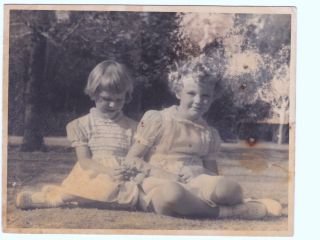KEY POINTS-
- We often adapt the behavior of others we consider superior.
- Our reasons to emulate others are often absurd reasons born of a desire to seem better than those around us.
- The objects of our affection are often chosen for dubious reasons.
- Our heroes often portray a conflict between our desire to triumph and the need to act with integrity.

Recently I was reading a new book by Lanny Jones, Celebrity Nation: How America evolved into a culture of Fans and Followers. Lanny Jones, who was one of People Magazine's top editors certainly knows about celebrities: real heroes who have acted with bravery and integrity, and those people who have managed to dazzle us, to acquire fame and a following without much or sometimes no merit at all. It made me think about how we construct our identity. Who do we model ourselves on and why?
From an early age, we have people who seem glamorous in our lives, starting of course with the fairy tales of our early youth, the princess and the prince. Cinderella, for example, is one of the most widespread of all the fairy tales with its wonderful reversal, the poor, hard-working, ill-treated sister who, thanks to the prince and the fairy godmother becomes the princess. The glass slipper may become a grass slipper, but the story remains the same in whatever country it appears. Good here triumphs so satisfyingly over evil.
I remember as a girl growing up in South Africa, one of two sisters, how we admired and emulated two sisters who lived down the road from us. There was nothing royal about their household. It was not that they were more prosperous or lived in a larger house or garden or owned a gold carriage. Money did not play a role in our admiration, but rather certain slightly absurd and chance characteristics. Firstly, there were their unusual names. Crawford and Brett, they were called (the one name sounding like a surname and one which seemed to belong to a boy, not a girl). We thought the names very grand. Then there were stories about the two sisters. Crawford, who was blond was said to wash her hair in lemon juice, and Brett who was a brunette in beer! It was rumoured, too, that their very white skins (this was apartheid South Africa) were the result of baths in milk and some said actually champagne. They also had the habit when they met our mother in the street, even on their bicycles, of shaking hands and giving a little bob of a curtsey! This seemed even grander to us and we tried to copy them until our mother told us not to be so silly.
Later we looked for heroes and heroines in books. There was no television in the fifties in South Africa and certainly no social media, but our choices were often dubious. I remember standing before the mirror and saying aloud: "Who shall I be: Scarlett O'Hara or Melanie?" I had been reading "Gone with the Wind" and was trying to decide between the feisty Scarlett who is willing to do almost anything to achieve what she desires even killing a man and the good-hearted, mild, and kind Melanie. I'm afraid I was often tempted to follow in Scarlett's footsteps and to look for a man, an anti-hero like Rhett Butler who might finally tell me he didn't give a damn. In fact, many of my classmates even lifted their hands in the air eagerly in the classroom when we were asked by our teacher how many of us would marry Heathcliff from "Wuthering Heights" the mysterious interloper and Byronic hero whose tortured rage and jealousy causes so much unhappiness. What we admired and looked for perhaps was his excessive love for Catherine Earnshaw who vacillates between the wildness of her childhood on the moors and her love for Heathcliff and the civilized order and calm luxury of her existence with Edgar Linton.
All these characters give us a chance, perhaps, to express what lies within each one of us: the basic conflicts between a real desire to act with integrity and establish an orderly world, and the desire to triumph, to be a star, a hero or heroine in our own right.


